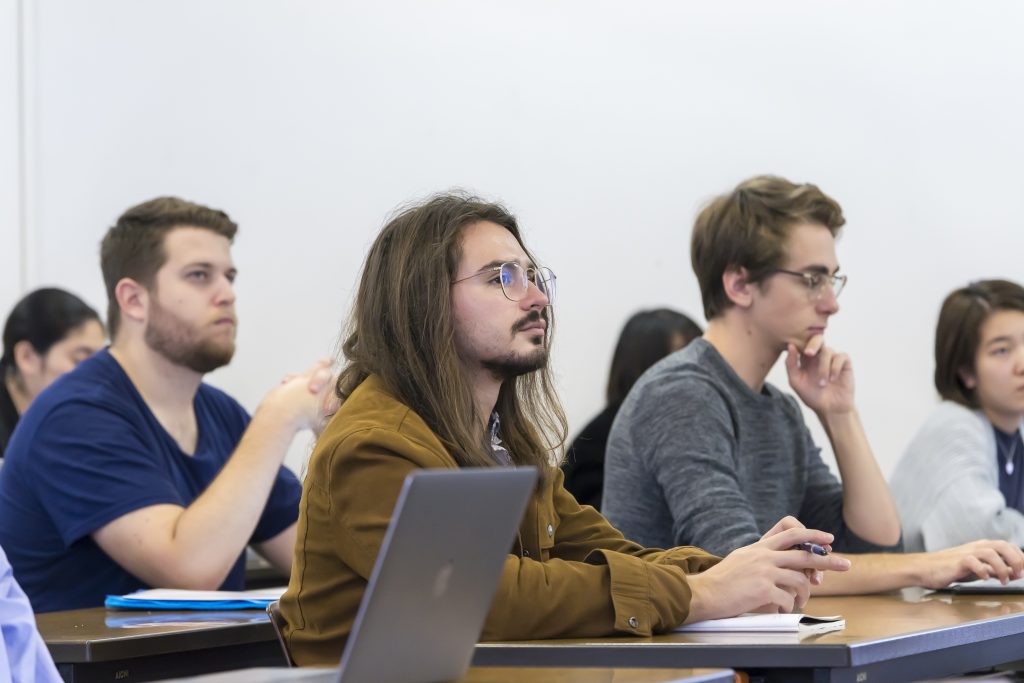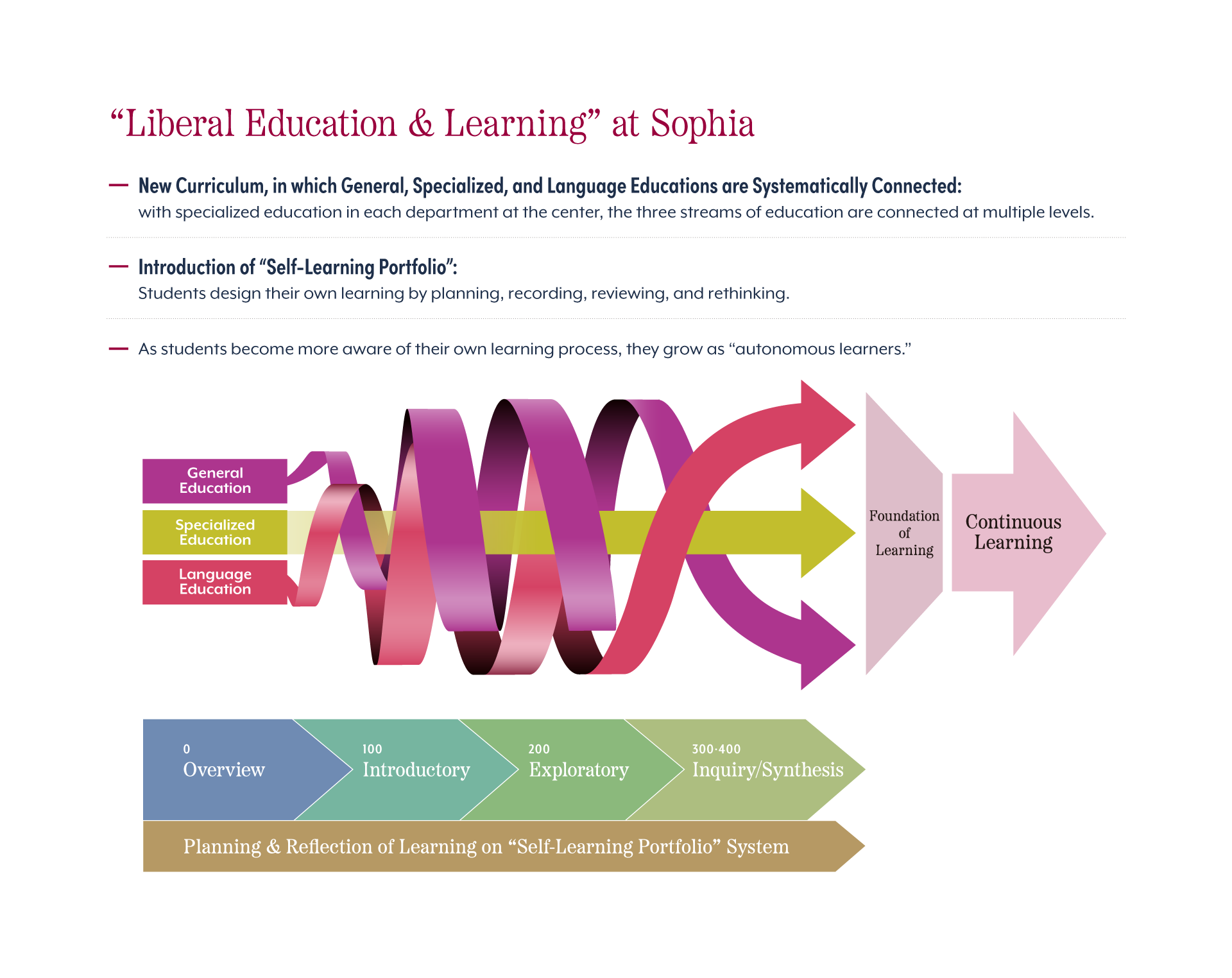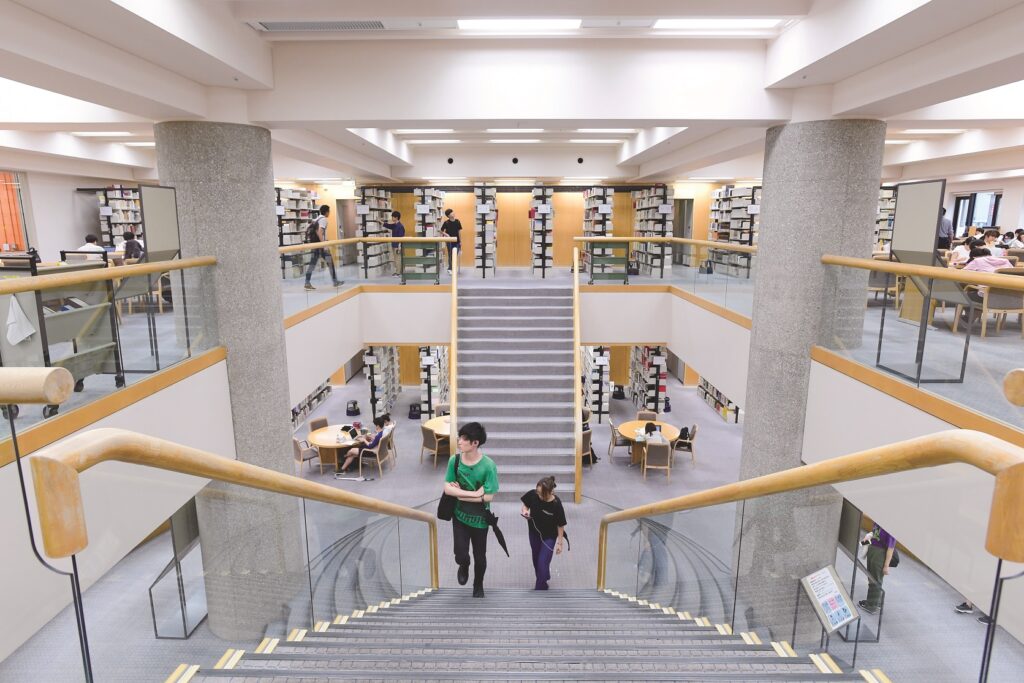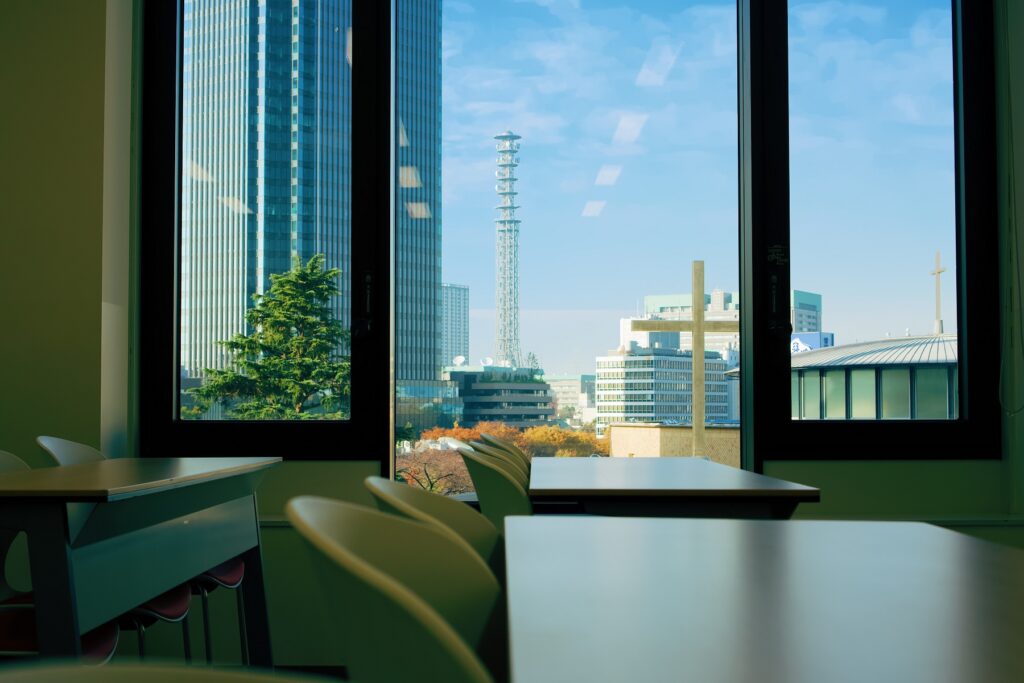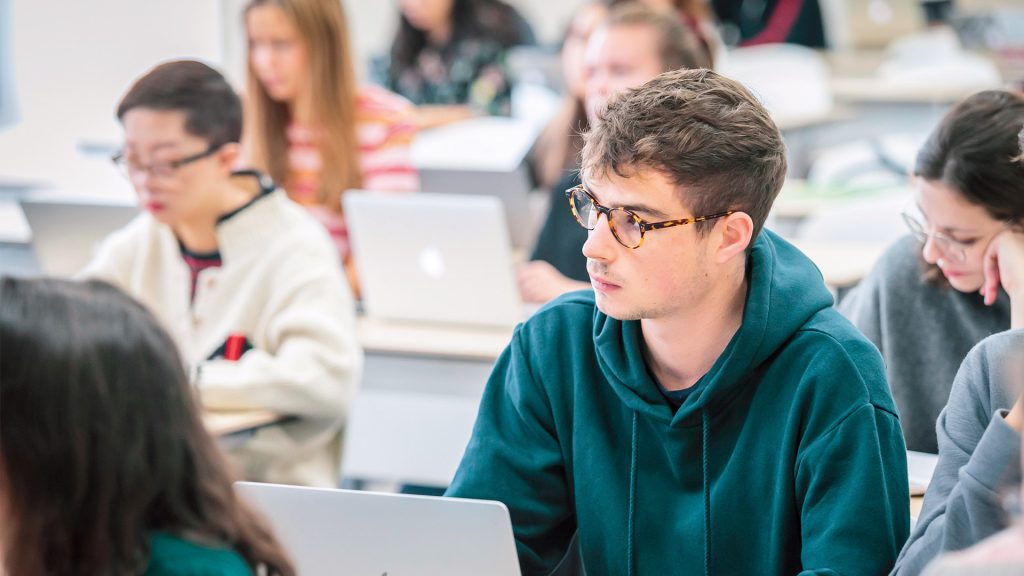
Academics
News

Continue to Learn Independently While Looking Towards the Ever-evolving Future
The significance of studying at a university is to refine and demonstrate the individuality of each student. This holds true even as our society rapidly changes. We all live our lives with goals, aspirations, and beliefs and the ethics and values on which they stand are based on our learning and experience. It is imperative that students learn to recognize the issues in society, views them from multiple perspectives, and confront them using their own experiences. There is no boring environment for learning at Sophia University, here you will find a learning environment that responds to your passion for independent, active, and proactive learning.
Sophia University’s Global Education
Sophia University offers a wide variety of courses and opportunities to study abroad and learn how to meet the needs of a global society. In order to play an active role in the global society, it is essential to acquire not only a high level of expertise and foreign language skills but also a broad and advanced education. In Sophia University’s diverse programs, students will participate in productive activities with people of various nationalities, languages, cultures, and expertise outside of their own field of specialization and will acquire the knowledge to continue their efforts to creatively produce things and services.
“Liberal Education & Learning” Consists of Three Pillars of Education at Sophia University
Sophia University’s “Liberal Education and Learning” (Kiban Kyouiku) does not simply mean foundational education prior to specialized education (as elsewhere in Japan). It expresses the concept of undergraduate learning at Sophia University, which is to provide students with a foundation to continue learning throughout their lifetime.
Sophia’s educational philosophy of “For Others, With Others,” based on Christian Humanism, is at the foundation of Liberal Education & Learning. The goal of Liberal Education & Learning is for Sophia students to acquire multiple perspectives to understand today’s pressing issues, competencies to critically think and inquire, skills to communicate with people with diverse backgrounds, and creative capabilities to build better futures, while learning from the past.
In order to realize the concept of Liberal Education & Learning, Sophia’s curricula are structured in ways that “University-wide General Education”, “Specialized Education”, and “Language Education” are inter-connected throughout the four years of students’ learning. Such curriculum design enables students to acquire multifaceted knowledge and intellectual abilities in a well-balanced manner, which also forms a foundation for continuous learning. At Sophia, this is made possible because all faculties and departments are located on the same campus.
About the Center for Liberal Education and Learning
The Center for Liberal Education & Learning (CLEL) is responsible for developing and coordinating curricula that effectively connect specialized courses of each department with university-wide general education courses provided by faculties, departments, Center for Language Education & Research, and Center for Global Education and Discovery. CLEL itself also offers general education courses, including “Core” courses compulsory to all the undergraduate students, as well as learning support services, such as “Writing Lab” and “Data Science Clinic.” CLEL consists of six divisions: “Christian Humanism,” “Embodied Wisdom,” “The Art of Thinking & Expression,” “Data Science,” “Knowledge Development & Exploration,” and “Educational Development.”
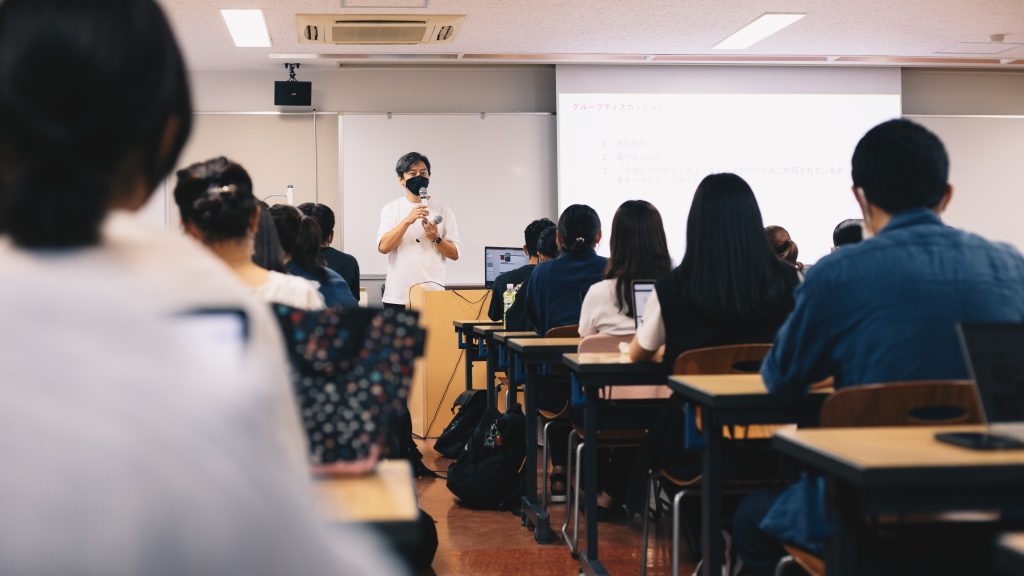
University-wide General Education
Students of all grades will study the five areas of “Christian Humanity” “Embodied Wisdom,” “Thinking and Expression,” “Data Science,” and “Knowledge Development and Exploration,” transcending the boundaries of undergraduate departments.
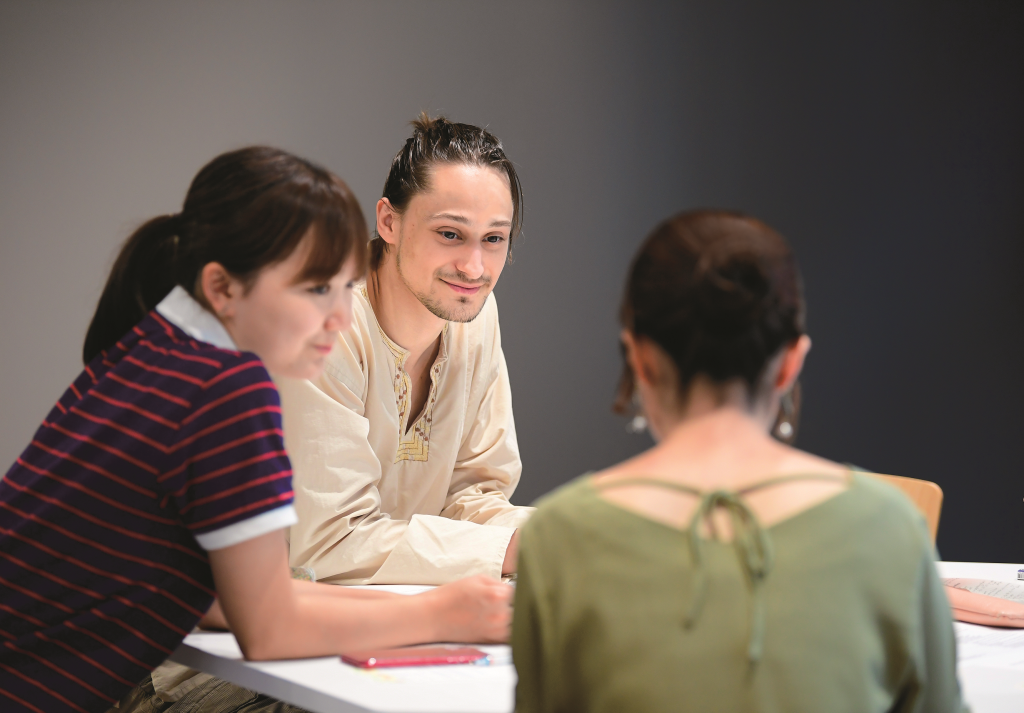
Language Education
We offer 22 language courses and a flexible curriculum that allows students to learn multiple languages at the same time.
9 faculties and 29 departments: To deepen knowledge in specialized fields
Each faculty and department of Sophia University is equipped with a system that allows students to carefully cultivate expertise in individual fields. As a “small university” with nine faculties and 29 departments of humanities, science and engineering all located on the Yotsuya Campus, Sophia University offers an interdisciplinary and cross-disciplinary approach through collaboration with other faculties and departments, enabling students to deepen learning in their own specialized fields from various perspectives.
Graduate and Professional Studies for Further Expertise
We live in an era in which students are choosing to enter graduate school according to their own goals, such as making the leap to becoming researchers or advancing their professional careers. Sophia University’s graduate school provides an environment that is conducive to cross-disciplinary research while enhancing academic expertise, taking advantage of the fact that top-notch researchers are gathered on one campus across disciplines.
Learning Support
The Central Library and General Research Building are equipped with numerous specialized journals, books, and newspapers, as well as self-study and group study spaces; a class leader system and academic advisor system, in which faculty members provide support in departments, classes, and seminars; and faculty development activities that systematically support faculty members in improving teaching methods and class management, and in acquiring and improving knowledge, skills, and abilities related to educational activities.
Lifelong Learning at Sophia University
As a place of inquiry where a diverse range of people gather to deepen their discussions, allowing them to gain “wisdom” even after they graduate, Sophia University aims to cultivate a lifelong, self-directed learner.
